What is a heart attack?
A heart attack occurs when one or more regions of the heart muscle experiences a severe or prolonged lack of oxygen caused by blocked blood flow. Due to the lack of oxygen, minutes can make the difference betweeen life or death. The faster you get treatment, the better your chance of survival. The national average of door to heart catherization time is less than 90 minutes. At Erlanger's Chest Pain Center, our goal is to achieve a door-to-intervention time of less than 62 minutes. Erlanger follows a special protocol called Code STEMI to ensure that heart attack patients are evaluated and treated faster.
Warning Signs
It's important to know the classic symptoms of a heart attack - and to know that, in women, the symptoms are often different, or more subtle. Women's heart attach symptoms are often misdiagnosed, due to the fact that many do not experience chest pain.
General Symptoms for men and women
- Most heart attacks involve discomfort in the center of the chest, which may last more than a few minutes or may go away and return over time. Uncomfortable pressure, fullness, squeezing, or pain may occur in the chest. Many people who experience a heart attack have warning signs and symptoms hours, days or even weeks in advance.
- Discomfort in other parts of the upper body. Pain may spread to the neck, jaw, shoulders, arms or stomach. The pain may be mild to intense.
- Anxiety, nervousness, and/or cold, sweaty skin
- Shortness of breath may include lightheadedness, fainting, sweating or nausea.
- Any unexplained symptoms that come with exertion and go away with rest
Symptoms More Common in Women
While there is no way to predict just how a heart attack will present itself, there are several symptoms that women are more likely to experience-- and may often mistake for something less serious- including:
- Uncomfortable pressure, squeezing, fullness or pain in the center of your chest that last more than a few minutes, or goes away and comes back.
- Pain or discomfort in one or both arms, the back, neck, jaw or stomach
- Shortness of breath with or without chest discomfort
- Breaking out in a cold sweat
- Anxiety
- Clammy skin
- Feeling lightheaded or experience dizziness
- Nausea or light-headedness
Remember—there are no hard, fast rules. For both men and women, the most common heart attack symptom is chest pain or discomfort. If you have any of the above signs and symptoms (particularly shortness of breath, nausea/vomiting or back or jaw pain) and believe you might be having a heart attack, don't wait. Call 9-1-1 and get to the hospital right way. Many of these warning signs are easily mistaken for something else. So never second-guess your symptoms.
What You Need to Do...
- If you're having any of the above symptoms: call 9-1-1 and get to the Emergency Room immediately.
- If you've had a heart attack: talk with your doctor about participating in the Erlanger Cardiac Rehabilitation Program. Our goal is to get you back to a normal quality of life. Cardiac rehabilitation helps you achieve this through an individualized program of exercise and education. It also reduces your risk of future cardiac events. LEARN MORE


